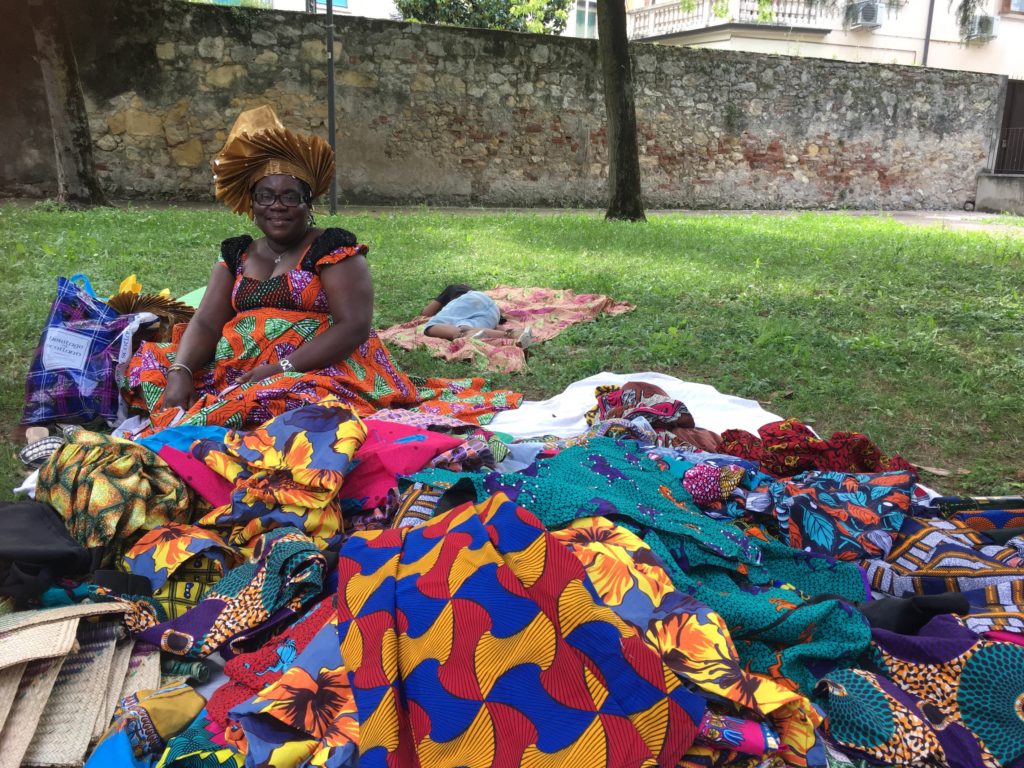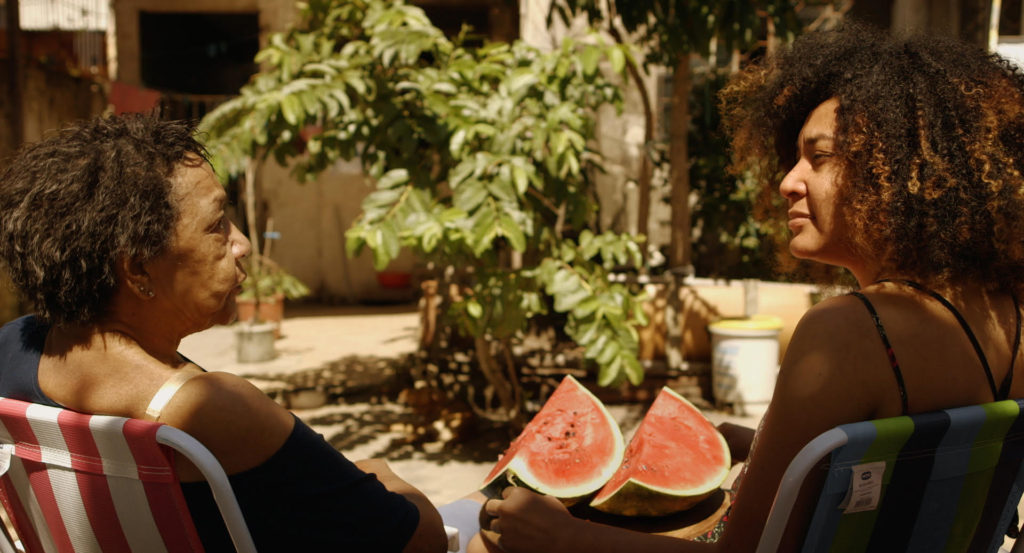In Lebanon, migrant workers are hit painfully hard by the ongoing attacks. REMAN, a migrant worker group in Beirut, is mobilising help and support to the community.
Words and Images by Jenny Gustafsson
The door to Viany Nguemakoue’s studio, on the ground floor of a building on a quiet street in Beirut, is left open. Right by the door, by a big window, is the sewing machine she uses to create her clothes. Viany is a designer from Cameroon with a brand that was established in the Lebanese capital in 2022. But these days, her studio has turned into a space for coordinating emergency relief to migrant workers in Lebanon, who have been hit hard by the Israeli attacks against the country.
It is almost impossible to see the sewing machine now, as it is covered with many small medicine boxes. On the floor are cardboard boxes with food and things like tissues, toothpaste and oil, and donated clothes stacked on top of her fabrics.
“This is for a family from Burkina Faso,” Viany says as she closes a plastic bag filled with medicine.
“And we’ll give these to people in Broummana,” she says, pointing to a bag with winter hats.
“They’re in the mountains, and it’s going to get cold soon.”
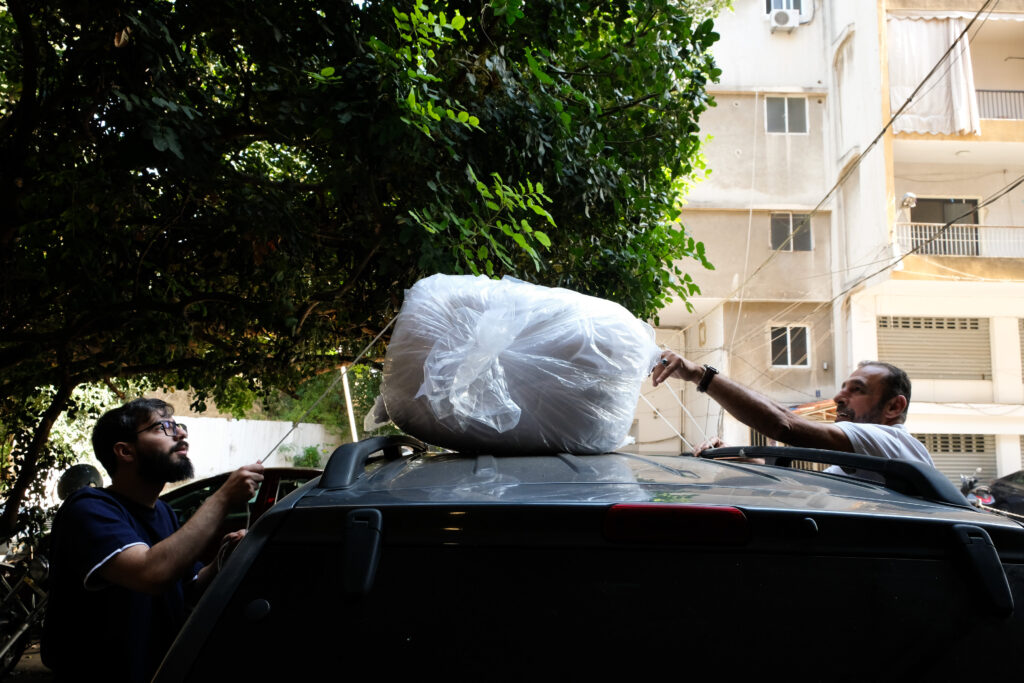
A man with a white t-shirt comes into the studio and starts taking bags to a car parked outside. It is Hael Saaid, who goes by the name Abu Ali, a Syrian man who works as a driver and joins Viany most days. Together, they drive around Beirut and nearby places to distribute emergency items to people sheltering from the bombings.
“Abu Ali knows all the locations! It’s not easy, but we manage every day,” Viany says.
“I love Viany. She’s very courageous. She does four days of work in one day,” Abu Ali says.
The relief is done through REMAN (Regroupement des Migrant.e.s de l’Afrique Noire), an organisation in Beirut co-founded by Viany in 2021. It previously provided community spaces for women migrant workers and their families. Now, it has shifted to emergency relief. Most people REMAN supports have fled their homes and workplaces in southern Lebanon, the Bekaa Valley and Beirut. They come from a number of countries in Africa, as well as South Asian countries such as Bangladesh. They are among Lebanon’s more than 175,000 migrant workers.
Viany takes out a small bag with puff puff, a deep-fried snack made from flour and banana popular in many West African countries, and shares some with Abu Ali.
“We give people food that is popular in Africa, we ask specifically what they want. We focus on what people enjoy,” she says.
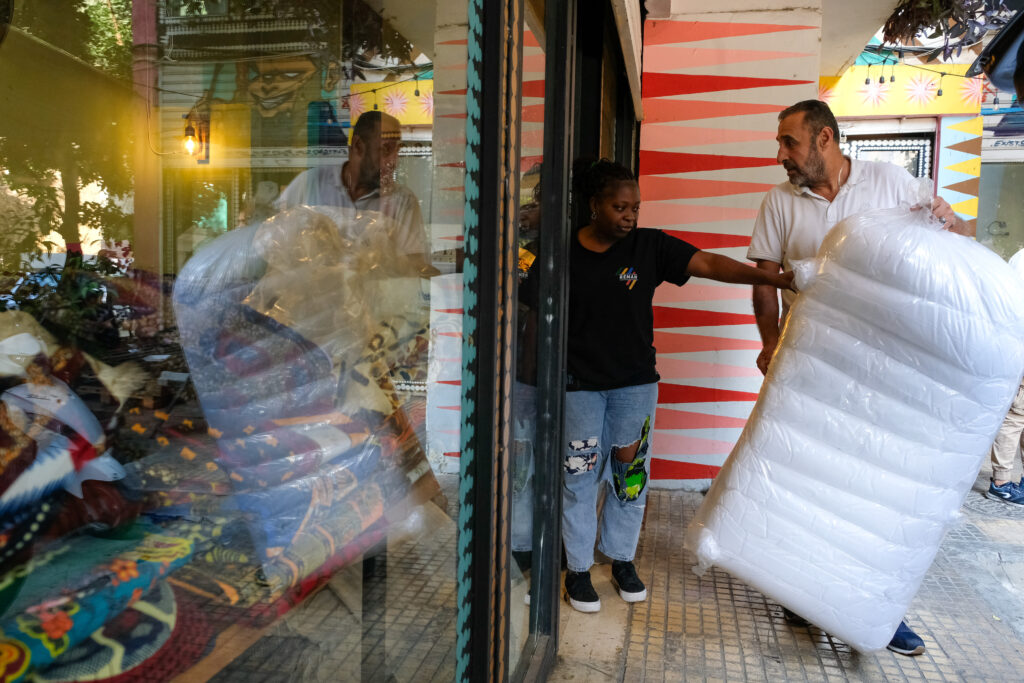
Outside, the car has been packed full with bags. Abu Ali has tied a stack of pillows onto the roof. Viany’s friend, Kevinne, also a member of REMAN, has arrived. The three of them get into the car and take off.
Abu Ali drives northwards. The traffic is bad, worse than before the war. Some 1,2 million people have been forced to leave their homes due to the Israel bombings and now shelter in already densely populated parts of the country. Their first stop is an apartment right on the highway leading out from Beirut. Twelve girls from Togo are staying there after having escaped different locations in the south.
When they park the car, two girls come down and give Viany a hug. She hands over a bag with medicine and a big bag filled with food items. They talk for a few minutes, share some updates about the situation, and then bid farewell. Abu Ali heads off to the next stop.
When the car gets to Dekwaneh, a suburb in the north of Beirut, three children are already waiting on the side of the road. They know Viany well; she is friends with their mother, also from Cameroon. The family had to leave their home in Nabatieh, a town in southern Lebanon that has been heavily bombed, when the escalated war began.
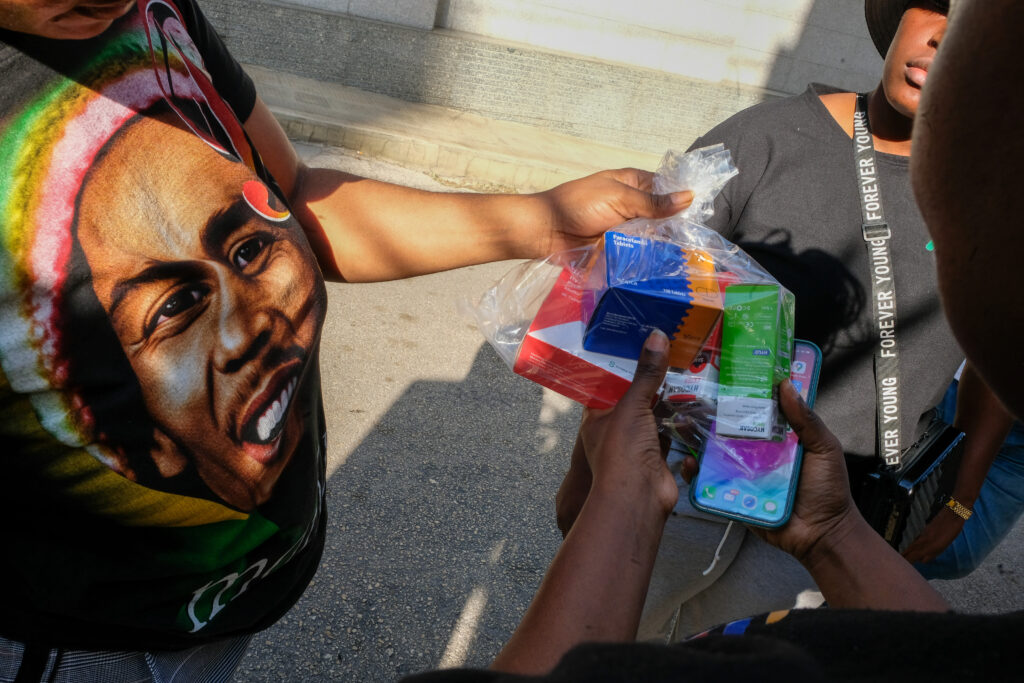
“Join us today and help us with the distribution,” Viany says to the children.
”This will give a smile to the people we meet,” she says.
They jump into the back of the car. Abu Ali takes off to the next destination. They will make six stops today, in different parts of the capital. Each time, they will hand over food, pillows, medicine and, if there are children in the shelter, some clothes. A group of young guys from Tripoli, a city in northern Lebanon, passed by earlier during the day to donate a bag full with winter jackets.
Each person REMAN meets has a story about a traumatic escape. Some people were left behind by the families they worked for; others lost everything they had here in Lebanon when they had to flee.
“There’s one girl who wants to return to Togo and needs support, but the ticket is very expensive. We can’t help with such amounts. We spend more than 1000$ every week on support,” Viany says.
All throughout the day, her phone keeps ringing and receiving messages. During the six years Viany has spent in Lebanon, she has become an important person in the community. When the war broke out, as soon as someone needed support, they would contact her.
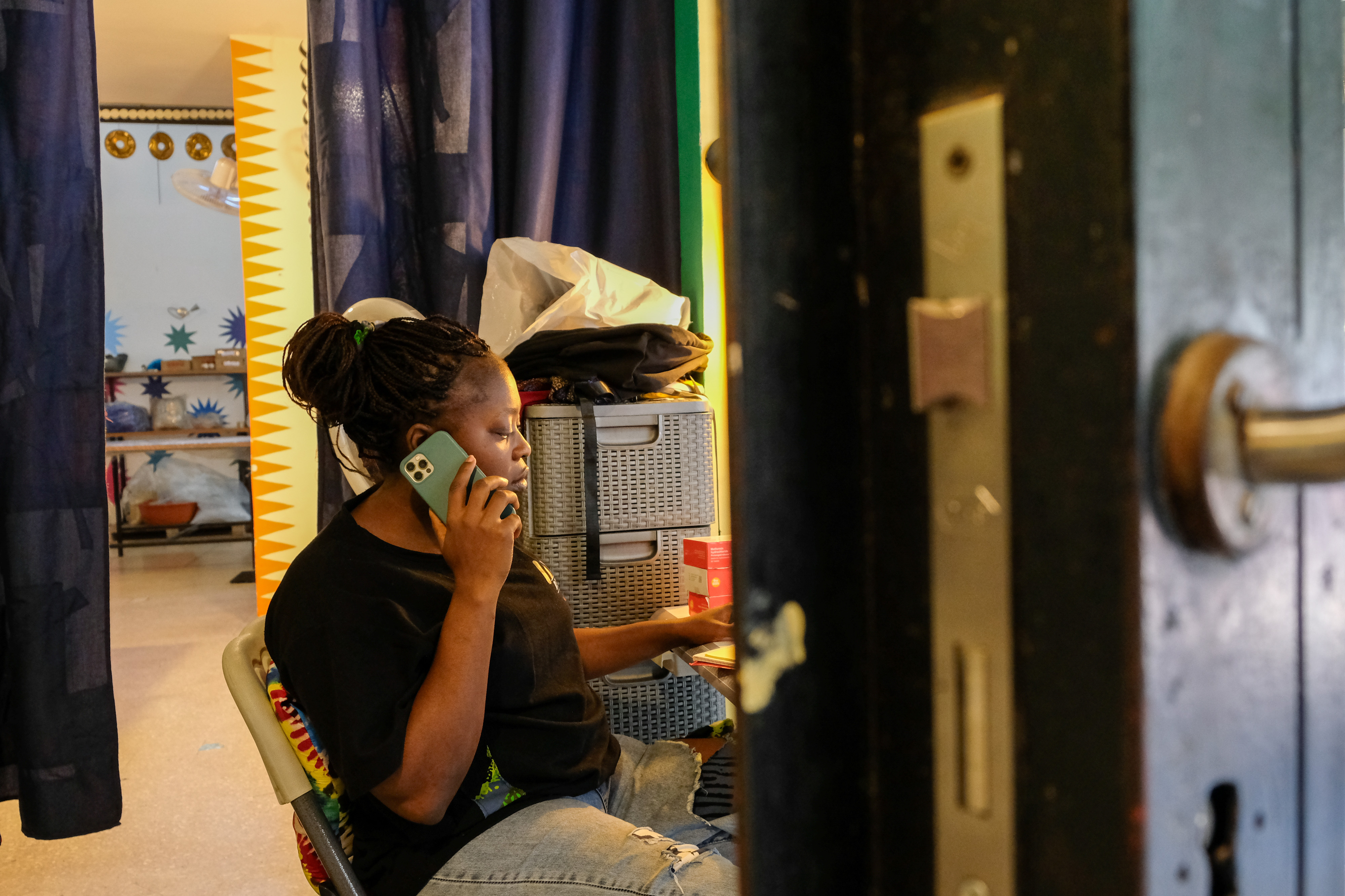
“We have helped many girls that were staying in the streets. We connect them with others from their country. Then they will be hosted by someone,” she says.
“There are girls from Sierra Leone, Congo, Ethiopia, Senegal, Ivory Coast, Kenya and others. One girl from Gabon. Sometimes we help Lebanese also.”
On the way to the second-last stop, the car moves slowly through the traffic. Outside the window, a police officer directs traffic. Ice cream shops, exchange offices and small vegetable shops pass by. Suddenly, Michael Jackson’s “They Don’t Care About Us” starts playing on the radio. Abu Ali turns up the volume, and everyone starts singing.
After finally having navigated through traffic, the car arrives in Nabaa, a neighbourhood with many migrant worker residents. They all get out of the car, grab a pillow each and a heavy bag filled with food and walk into a narrow street. More than 30 people, all from Burkina Faso, stay here in a small apartment. Their most urgent need – one of many of them – is a leaking sewage pipe right at the entrance.
When Viany, Kevinne and the children return to the car, they pass by an elderly lady sitting outside her front door. Her small verandah is entirely covered with plants, the same colour as her green jacket. “Can I also have a pillow,” she asks. “Of course,” they say and give her one.
For more than one month, REMAN has provided almost daily relief efforts. It is tiring, but the group sees no other option.
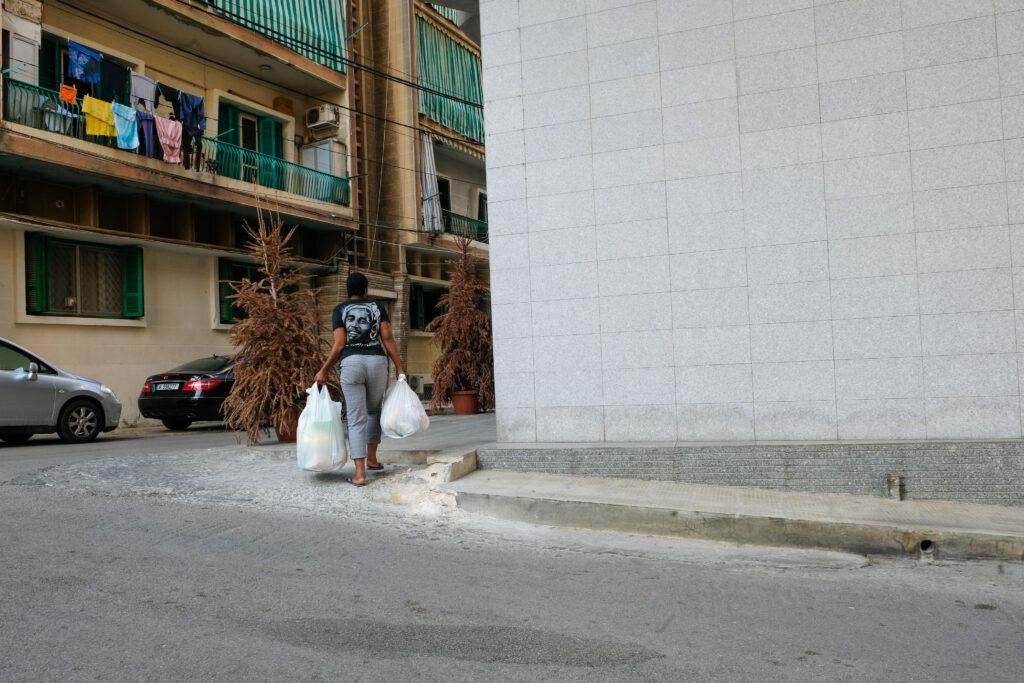
“If we don’t do it no one else will do it. And our sisters will be sleeping in the street,” Viany says.
REMAN also hosts weekly football sessions in Beirut, on Sundays which for many people who are migrant workers is the only day off. Since the start of the war, more than 35 people, sometimes more, come to play.
It is dark when the group arrives at the last destination, a house near the seaside promenade in eastern Beirut. It is a stop they have waited for all day: the family inside has a newborn baby, only one week old. REMAN had already collected food, clothes and diapers and delivered them to the hospital when he was born. Now, they take turns holding the tiny baby. The mother and father, a Lebanese-Ivorian couple who had to flee their home in southern Lebanon, bring plates with rice and chicken and offer them to the group.
“There are many cool people you meet during this war. That’s the only good thing,” Viany says.
REMAN is organising an ongoing emergency response to assist those displaced by Israel's bombings in Lebanon, providing essential support to meet their basic needs. Your support is crucial to continuing this vital work, helping migrant workers, especially women and their families, access safe transportation, food, clean water, daily meals through a community kitchen, medical care, hygiene supplies, and essential shelter items like mattresses. Every donation will go directly to REMAN’s efforts to support migrant workers in Lebanon.
Donate here.
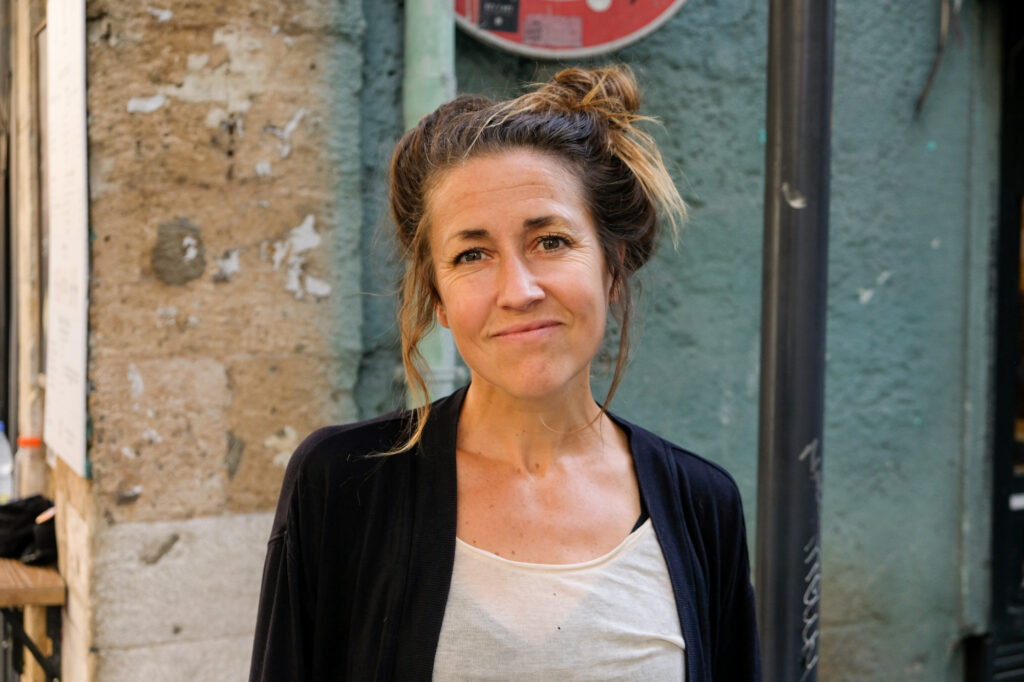
Jenny Gustafsson is a writer and photographer who has lived in Beirut since 2009. Her work often features topics like heritage and society, urban and rural culture, migration and global affairs. She is the co-founder of Switch Perspective, a group organising workshops on storytelling and reflection on power and stereotypes.


